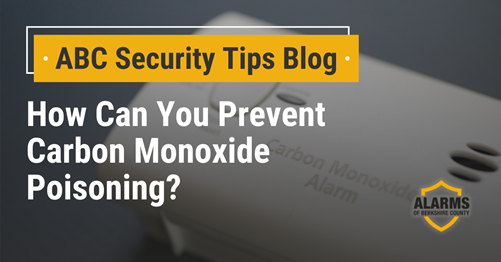How Can You Prevent Carbon Monoxide Poisoning?
Posted on
Known as the “silent killer,” carbon monoxide cannot be smelled, tasted, or seen—but high concentrations of this deadly gas in your home can quickly become fatal. So how can you protect yourself against it?
 Each year, thousands of people are injured in their own homes when a dangerous buildup of carbon monoxide occurs. In the United States, accidental CO poisoning (not related to home fires) causes more than 400 deaths annually. Because carbon monoxide deprives your body of the oxygen it needs to function, everyone is at risk of poisoning, regardless of age, fitness level, and other factors. The risk is highest for infants, the elderly, and those with certain chronic health conditions.
Each year, thousands of people are injured in their own homes when a dangerous buildup of carbon monoxide occurs. In the United States, accidental CO poisoning (not related to home fires) causes more than 400 deaths annually. Because carbon monoxide deprives your body of the oxygen it needs to function, everyone is at risk of poisoning, regardless of age, fitness level, and other factors. The risk is highest for infants, the elderly, and those with certain chronic health conditions.
This risk comes from the home appliances and heating systems we use everyday: carbon monoxide is produced when we burn any fuel that contains carbon. Wood-burning stoves, fireplaces, and furnaces, gas- and oil-fired appliances, charcoal grills, and cars all emit carbon monoxide. While these culprits may be unavoidable, their proper use and regular service will go a long way toward keeping you protected. Read on to learn how you can keep your family safe from CO poisoning.
Tips for Preventing Carbon Monoxide Poisoning at Home
Install a carbon monoxide detector. This is the most crucial step you can take in preventing CO poisoning. Choose detectors with audible and visible alarm signals, and install one on every level of your home. Place one detector where the alarm will wake you up, such as in or near your bedroom. For battery-operated detectors, replace the batteries twice per year, at the same time you do this for smoke alarms.
Know the symptoms of carbon monoxide poisoning. Carbon monoxide poisoning causes flu-like symptoms that typically include headaches, nausea, dizziness, confusion, tiredness or weakness, and chest pain. Symptoms affect pets shortly before they’re felt by humans. However, it’s important to remember that a CO buildup can occur while you are sleeping—killing you before you even experience symptoms. This is why a detector is still a must.
Keep your service appointments. All gas, oil, and coal-burning appliances and heating systems should be professionally inspected and serviced annually. Your chimney should also be cleaned at least once per year to prevent a blockage of built-up debris.
Don’t let cars idle in the garage. For both attached and detached garages, if your car’s engine is on, the garage door should be open to allow fresh air to circulate.
Use generators safely. Generators should be run outside the home only—never bring the generator inside the garage or other part of your home.
Trust the Professionals
For 24/7 protection and monitoring of the CO levels in your home, carbon monoxide detectors can be integrated with your fire alarm system. ABC’s UL-listed central monitoring station will quickly respond in the event of unsafe CO levels.
